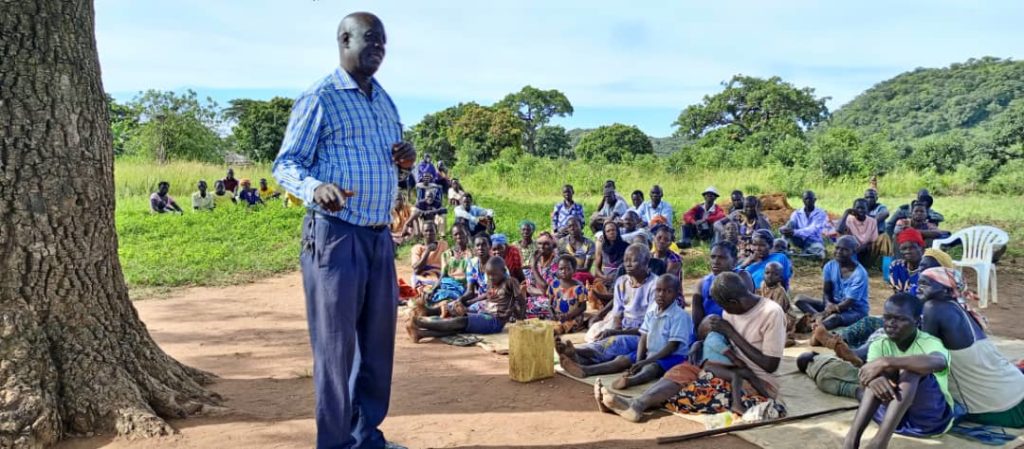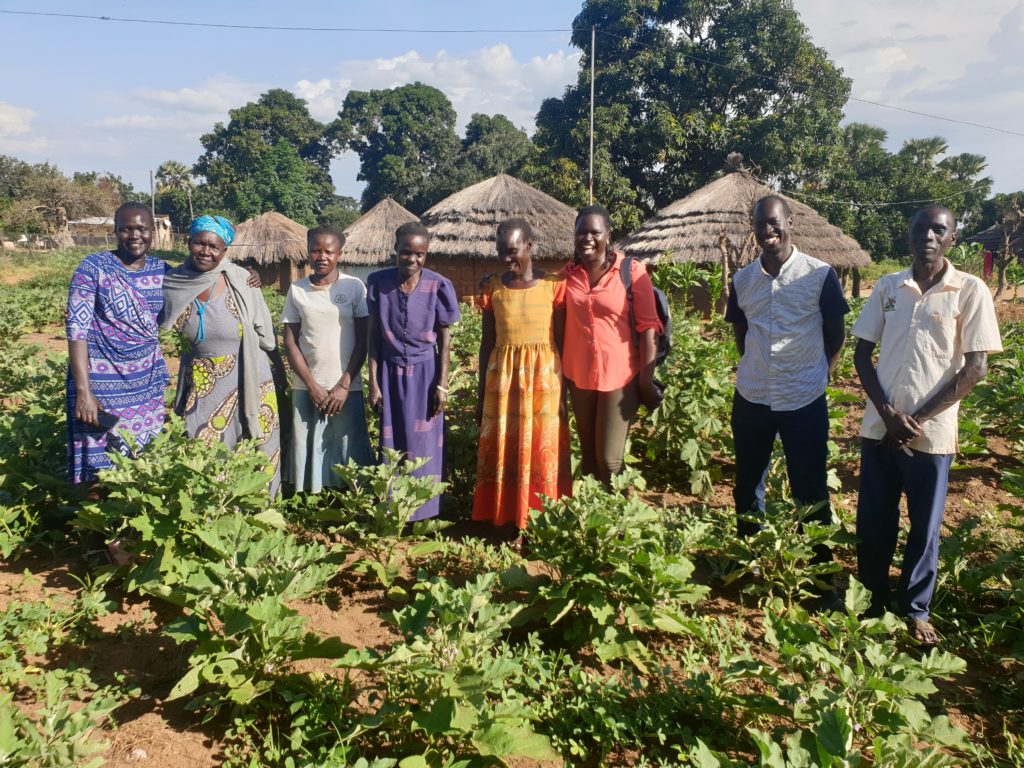During the pandemic, our Network for Africa team kept in daily contact with our African partners by zoom, text and email. But it was only in October 2022 that our CEO, Annabel Harris, was able to pay in in-person visit to see our project in northern Uganda.
Mental health issues can affect anyone, anywhere, no matter their circumstances. But in conflict zones, 1 in 5 people suffer the long-term impact of war, often compounded by grinding poverty. In northern Uganda the people we work with lived through a brutal 21-year long civil war, characterised by unspeakable atrocities, not least forcing tens of thousands of children to become soldiers. Depression, anxiety and post-traumatic stress disorder (PTSD) are rife. Stigma still burdens people suffering from poor mental health in the Global North, so imagine how much more challenging it is in the remote villages where we work.
This Is What Annabel Found On Her Visit:
Our work starts with raising awareness. On my recent visit I witnessed 150 people listening intently as our mental health team described the signs and symptoms of different mental illnesses/disorders. You could see the expression on their faces change as they heard that there are solutions.

A painfully thin elderly woman with three small grandchildren sticks in my mind. The children all had chest infections and she looked exhausted. Her daughter had an undiagnosed and untreated mental health condition, and so Grandma was looking after the children.
The next day at our mental health clinic I saw the same grandmother, but this time with her daughter, who was professionally diagnosed with psychosis, thanks to our local team. She has now started treatment, and the children have antibiotics for their chest infections. I will not forget this family, and I will look out for them next time I am there.
What will happen next? At follow-up appointments, this family will meet others with similar experiences. Our committed local community team will support them as they join self-help groups of 16-18 people, with a 50:50 ratio of people with mental illness and their care-givers. They will meet regularly, starting a savings and loans scheme. Our team will remind them to attend their appointments at the monthly mental health clinics; they will offer counselling and home visits.

Once these self-help groups are functioning well, we will supply resources to set up small businesses selling items at local markets e.g. sugar, salt, cooking oil, rice etc., to generate a small income. Many hope to earn enough to one day buy a cow. This is how the cycle of mental illness and poverty can be broken. It isn’t rocket science, but it requires the sustained attention of our remarkable local partner in northern Uganda. I left Uganda once more humbled by their dedication, and happy we can play our part in their work.
Thank you for your financial support. As Annabel witnessed, it provides an enormous, practical helping hand to people who are determined to give their children a better future. If you are able to support us, please click on the ‘DONATE’ button. Thank you.